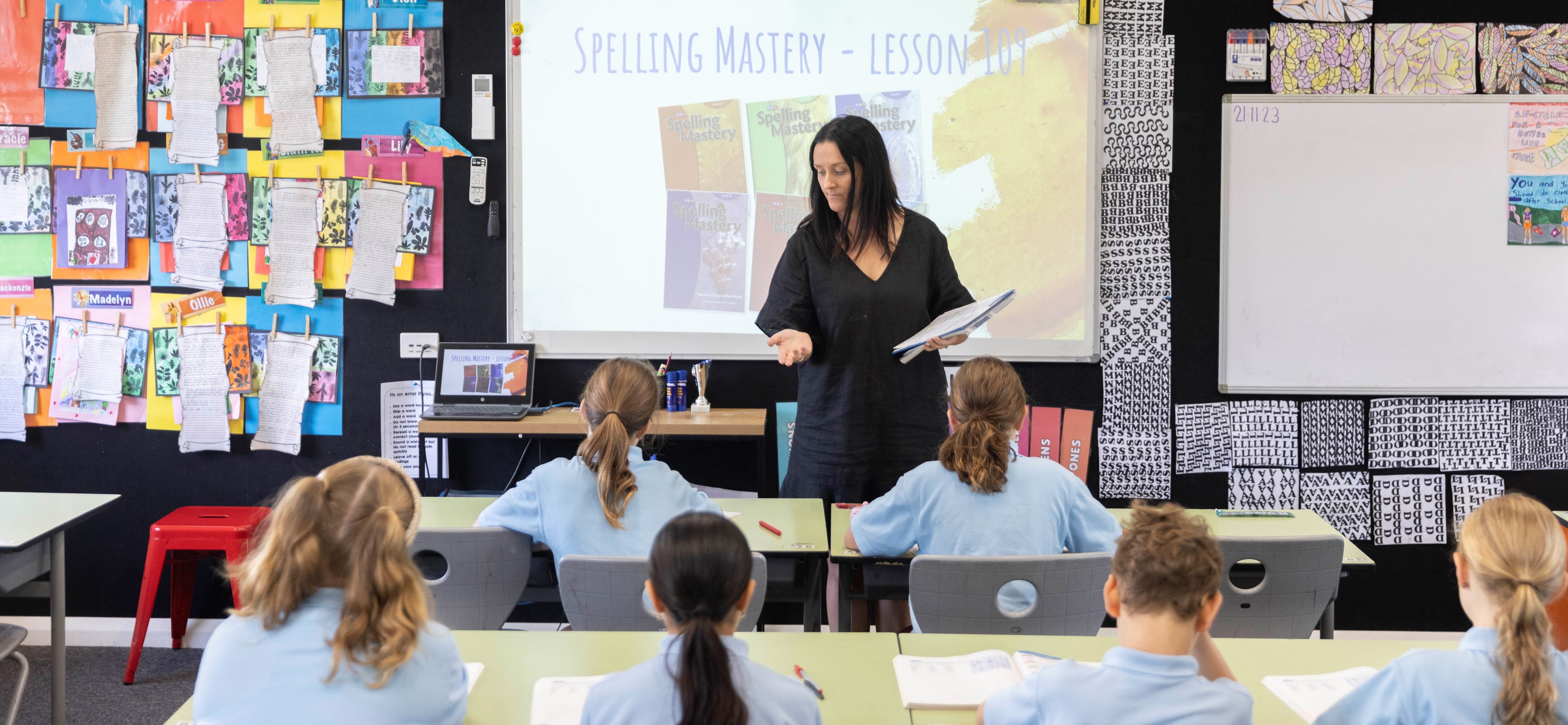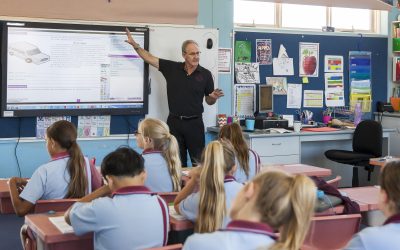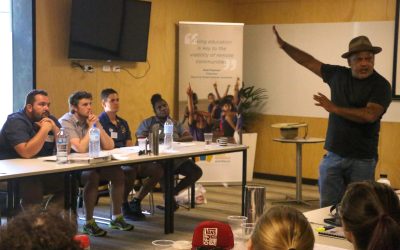In this interview Arthur Sclippa, Good to Great Schools Australia’s Instructional Leader, explains why working with Good to Great Schools Australia’s network of remote schools is the logical next step in his decorated 40-year career.
Tell us about your history at Goondi State School.
I was at Goondi State School for 23 and a half years, which is quite a long time. Prior to NAPLAN and all that testing, we had state testing, and we were going very well. According to Queensland we were one of those schools that was performing well above average. Then along came NAPLAN and we looked at our results and we thought, ‘We’re just average, that’s all we are.’
From that moment on, myself and the leadership team decided to implement things that would move us from being an average school to an above-average school. Mainly because we felt that we had to punch above our weight because of the kids we had – for a lot of our kids, education was the only way out. And getting a C just wasn’t going to cut it, they needed to be kids that could get As and Bs.
So we began an improvement agenda that was led by looking at high-yield pedagogies; and explicit instruction was that. And so we became an explicit instruction school, and we introduced things like consolidations later on. Through that, and through having a very precise curriculum and maintaining high expectations, we ended up being one of those schools that did punch above their weight, and a school that was producing results that were very much in the green for most areas most of the time.
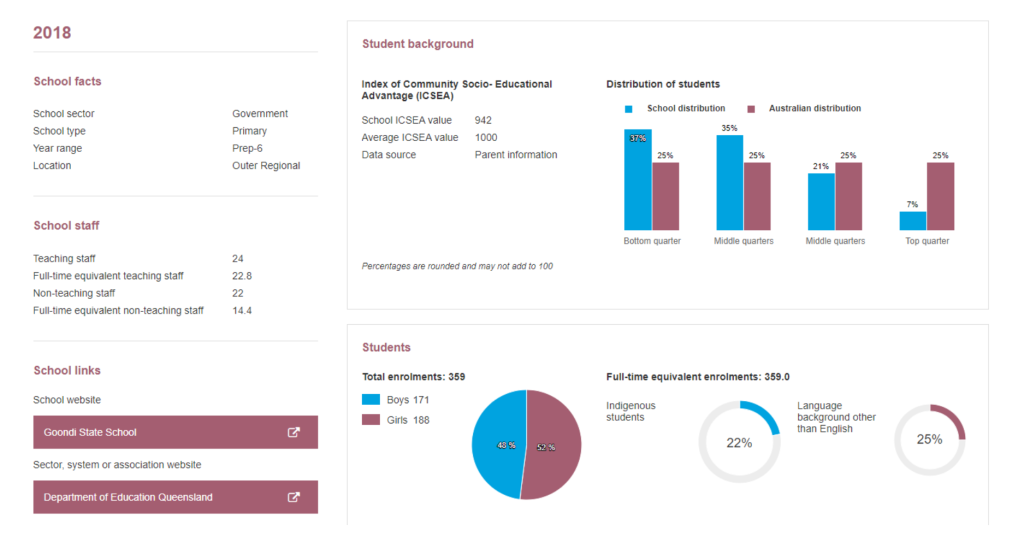
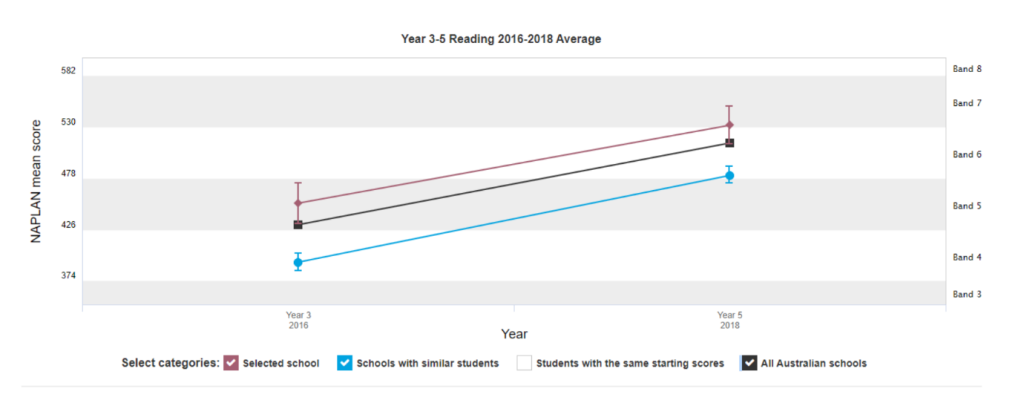
The graph above shows Year 3-5 Goondi State School NAPLAN results from 2016-2018 in Reading, with results higher than the national average and far exceeding schools with similar socio-educational advantage.
Tell us a bit about your role at Good to Great Schools Australia.
I was initially approached by GGSA to value-add to what they already have in place at Cape York Aboriginal Australian Academy, the programs. So I spent some time looking at the two schools – Hope Vale and Coen – and from that I was able to come back with some recommendations.
My role predominantly is about trying to implement strategies and pedagogies that would help what is already there. There is really good stuff there and I have already identified a few areas where things could be enhanced. I see my basic role as being an explicit instruction leader, if you like, and assisting those teachers and those schools to adopt that particular pedagogy with the programs that are coming onboard that are based on that.
What inspired you to take on the challenge of these remote Cape York schools?
You know, you always want to make a difference. But if you really want to know the back story – I started teaching in Kowanyama… the first five years of my teaching was in Kowanyama… I started as a graduate there.
I was, I would consider myself an average to above-average teacher, and in those early years I don’t think I taught as well as I could have. And I spent the rest of my teaching life then trying to find ways and put things in place to improve student outcomes all along.
So, for me now it’s sort of like, putting something back and it is a bit of a payback for those years perhaps where I wasn’t the best as a teacher, I was just learning to be a teacher. And now I have an opportunity with those schools that I’m supporting to actually make a difference and hopefully help other teachers improve their practice and improve their capability so they can improve the life of their Indigenous students.
Check out the Good to Great Schools Australia newsroom [UPDATE LINK] for more interviews with our expert team.

